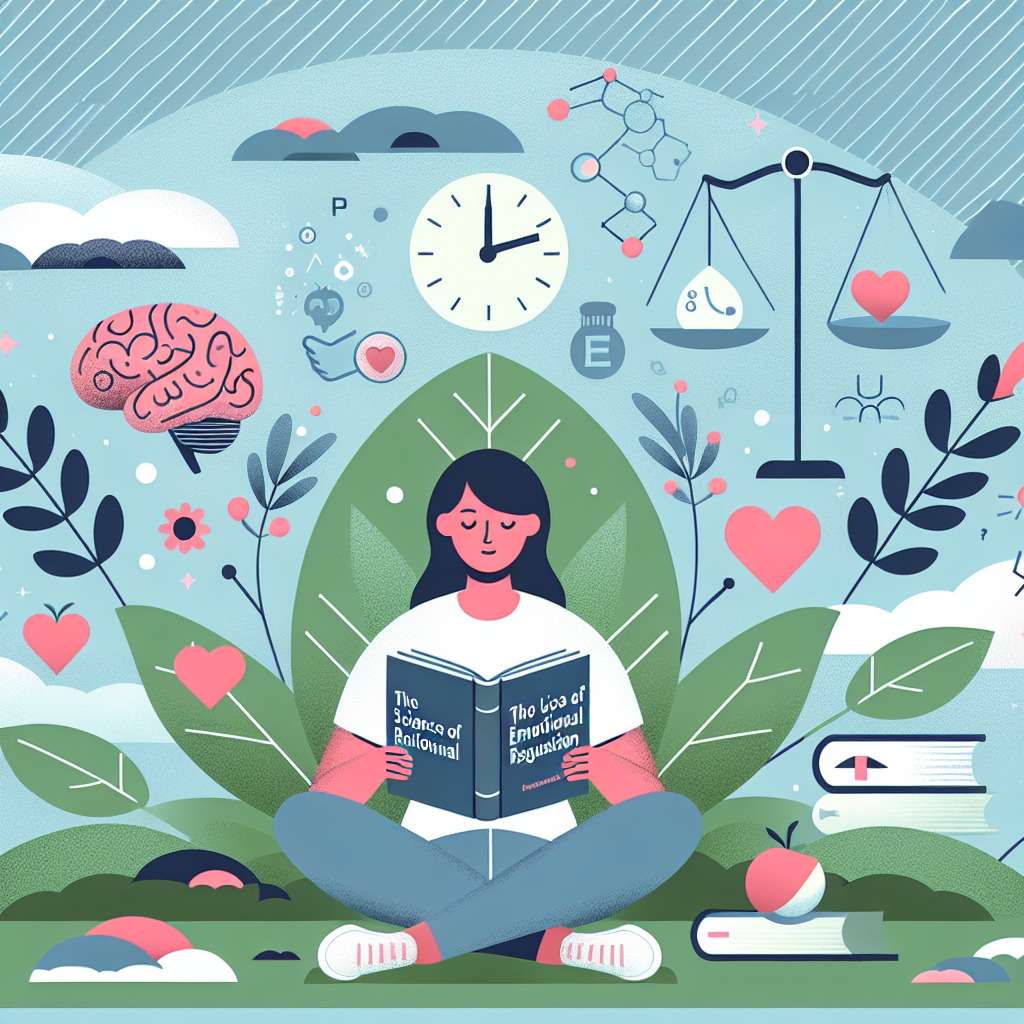Emotions play a significant role in our lives, influencing everything from our relationships and decision-making to our physical health and well-being. However, many people struggle with managing their emotions effectively, leading to stress, anxiety, and other negative consequences. Fortunately, the field of emotional regulation offers valuable insights and techniques for improving our emotional health and well-being.
Emotional regulation is the process of identifying, understanding, and effectively managing our emotions. It involves recognizing and labeling our emotions, understanding the triggers that lead to certain emotional responses, and using coping strategies to regulate our emotions in healthy ways. By improving our emotional regulation skills, we can enhance our overall mental and physical health, as well as our relationships with others.
Understanding the Science of Emotional Regulation
The science of emotional regulation is rooted in neuroscience, Psychology, and cognitive science. Research in these fields has identified key brain regions and neurotransmitters involved in emotional processing and regulation, as well as the impact of environmental and social factors on our emotional well-being.
One of the key brain regions involved in emotional regulation is the amygdala, which is responsible for processing and responding to emotional stimuli. When we perceive a threat or experience a strong emotion, the amygdala signals the release of stress hormones like cortisol, triggering the body’s fight-or-flight response. However, other brain regions, such as the prefrontal cortex, play a crucial role in regulating and modulating these emotional responses.
The prefrontal cortex is responsible for higher-order cognitive functions, such as decision-making, impulse control, and emotional regulation. Through a process known as cognitive reappraisal, the prefrontal cortex can modulate the amygdala’s response to emotional stimuli by reinterpreting or reframing the situation in a more positive or neutral light. By engaging in cognitive reappraisal and other self-regulation techniques, we can learn to regulate our emotions more effectively and reduce the impact of stress on our mental and physical health.
Improving Emotional Regulation Skills
There are several strategies and techniques that can help improve your emotional regulation skills and enhance your emotional health:
1. Mindfulness meditation: Mindfulness meditation involves focusing on the present moment without judgment, allowing you to observe your thoughts and emotions without reacting impulsively. By learning to cultivate a mindset of acceptance and non-reactivity, you can become more attuned to your emotions and respond to them in a more balanced and adaptive way.
2. Cognitive-behavioral therapy (CBT): CBT is a therapeutic approach that helps individuals identify and challenge negative thought patterns and beliefs, leading to more positive and adaptive emotional responses. By taking a cognitive-behavioral approach to your emotions, you can develop healthier ways of thinking and behaving that support emotional regulation and well-being.
3. Emotion-focused coping: Emotion-focused coping involves engaging with your emotions in a constructive and adaptive way, rather than avoiding or suppressing them. By acknowledging and processing your emotions, you can gain insight into their underlying causes and develop strategies for managing them effectively.
4. Social support: Building and maintaining positive relationships with others can have a significant impact on your emotional health and well-being. By connecting with friends, family, or support groups, you can receive emotional validation, encouragement, and practical assistance in times of need.
Frequently Asked Questions (FAQs)
Q: Why is emotional regulation important?
A: Emotional regulation is important for several reasons. It helps us manage stress, reduce anxiety and depression, and build healthier relationships with others. By improving our emotional regulation skills, we can enhance our mental and physical health and well-being.
Q: How can I improve my emotional regulation skills?
A: You can improve your emotional regulation skills by practicing mindfulness meditation, engaging in cognitive-behavioral therapy, using emotion-focused coping strategies, and seeking social support. These techniques can help you identify, understand, and manage your emotions more effectively.
Q: What are the signs of poor emotional regulation?
A: Signs of poor emotional regulation may include frequent mood swings, difficulty expressing or managing emotions, impulsivity, and interpersonal conflicts. If you are experiencing these symptoms, it may be helpful to seek support from a mental health professional.
Q: How can I help someone improve their emotional regulation?
A: If you have a friend or loved one who struggles with emotional regulation, you can offer support and encouragement by listening actively, providing validation, and helping them identify and practice healthy coping strategies. Encouraging them to seek professional help if needed can also be beneficial.
In conclusion, the science of emotional regulation offers valuable insights and techniques for understanding and improving our emotional health. By learning to recognize, understand, and manage our emotions effectively, we can enhance our mental and physical well-being, as well as our relationships with others. By practicing mindfulness meditation, engaging in cognitive-behavioral therapy, using emotion-focused coping strategies, and seeking social support, we can develop healthier ways of regulating our emotions and leading more fulfilling lives.




Leave A Comment